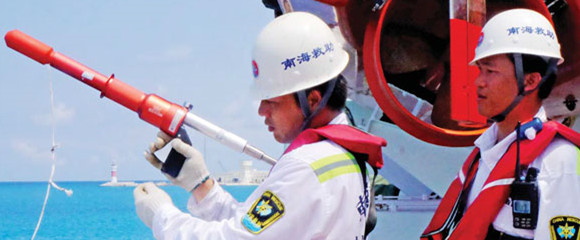Long delayed apology for WWII slave labor
Updated: 2016-06-03 08:46
(China Daily)
|
|||||||||
 |
|
James Murphy, a US POW who survived working at Mitsubishi's Osarizawa Copper Mine and the infamous Bataan Death March in the Philippines, reacts after a Mitsubishi news conference apology in Los Angeles on Sunday. [Photo/Agencies] |
The apology and compensation offered on Wednesday by Mitsubishi Materials Corp to the survivors or the families of 3,800 Chinese nationals forced to work as slave labor during World War II is a case of justice being done-finally.
More than 70 years have passed since about 40,000 Chinese were brought to Japan to work as forced labor.
Around 7,000 died there because of the harsh working conditions, malnutrition and mistreatment.
The survivors were haunted by their experience, suffering not only from psychological trauma, but also a lasting sense of humiliation and injustice, as their attempts to file lawsuits to have their woes redressed were invariably rejected by Japanese courts.
The 100,000 yuan ($15,200) in compensation to be paid to the survivors or the families of Chinese laborers forced to work in the mines and factories of Mitsubishi Mining, as the company was then called, by no means fully makes up for the lives lost or the sufferings of the survivors.
But it reflects contrition of some sort by the company, and also indicates a willingness to seek reconciliation.
The compensation and the apology it has offered, as well as Mitsubishi's promise to build memorials for the Chinese who died in the labor camps, will help soothe the pain still felt by the families of the deceased and the few remaining survivors, whose number is now less than 20.
Mitsubishi has set a good example for other Japanese companies, such as Mitsui Mining, to follow. They should know only by taking a responsible attitude toward history and paying off their moral debt can they win forgiveness for their wartime actions.
The Japanese courts have always rejected claims for reparation by former Chinese laborers on the grounds of state immunity and the country's statute of limitations-a 20-year limit on the filing of such lawsuits.
They have also insisted the Chinese have no judicial right to ask for compensation, because they claim it was renounced in a Sino-Japanese joint communiqué in 1972 when the two countries normalized ties.
But, while China waived reparation claims by the state, it never waived such claims by Chinese nationals as individuals. It is both legally and morally justified for Japan's war victims to demand the country right its wrongs.
By refusing to take any responsibility for the wartime forced labor, the Japanese courts have continually rubbed salt into the wounds.
However, justice may be delayed, but it will not be denied.
Related Stories
Long delayed apology for WWII slave labor 2016-06-03 07:29
Govt 'not ignoring' slave labor problem 2015-12-22 08:00
Shrimp tied to supplier who employs slave labor 2015-12-15 08:05
Mitsubishi apologizes for using US POWs as slave labor 2015-07-21 07:53
Today's Top News
China looking forward to trade talks with EEU: MOC
Russia to promote EAEU-China economic cooperation
AIIB 'set to earn international trust, credibility'
EIB and AIIB to strengthen cooperation
Some 13,000 migrants saved, over 700 dead
Economists urge go-slow on EU's anti-dumping
Chinese investors eye European soccer goal
Rescue vessel eyed for the Nansha Islands
Hot Topics
Lunar probe , China growth forecasts, Emission rules get tougher, China seen through 'colored lens', International board,
Editor's Picks

|

|

|

|

|

|







